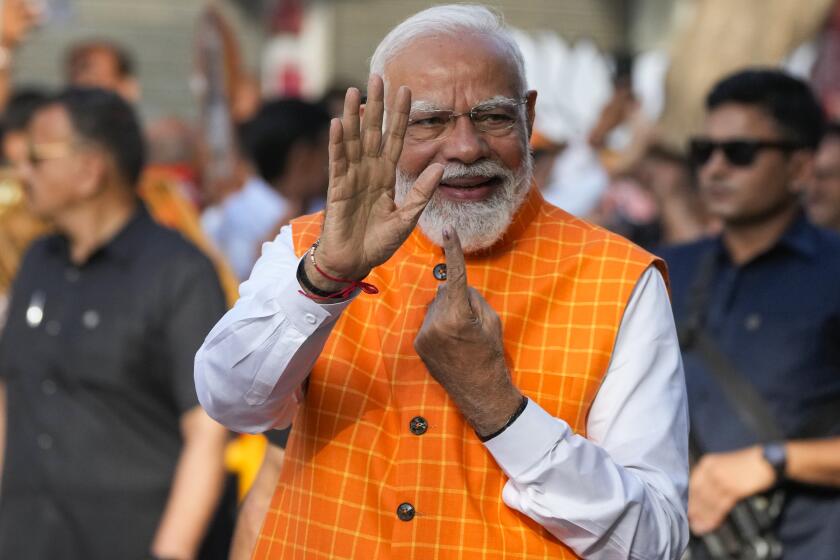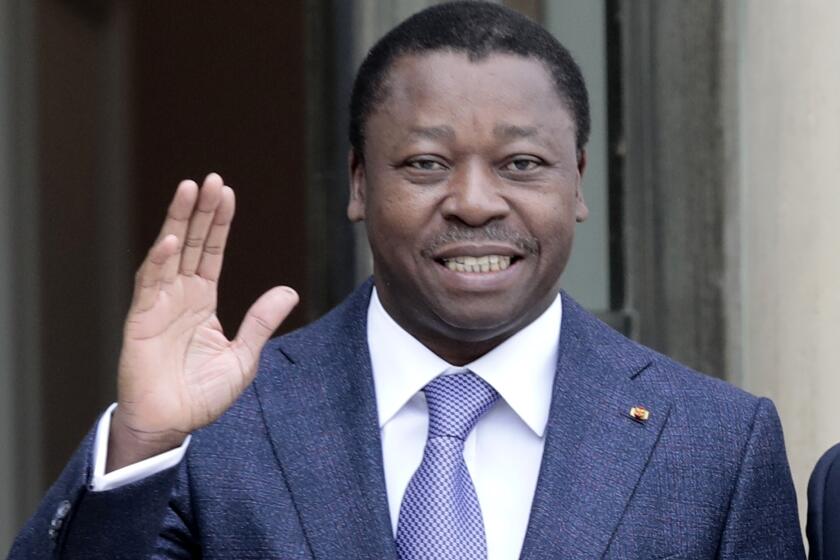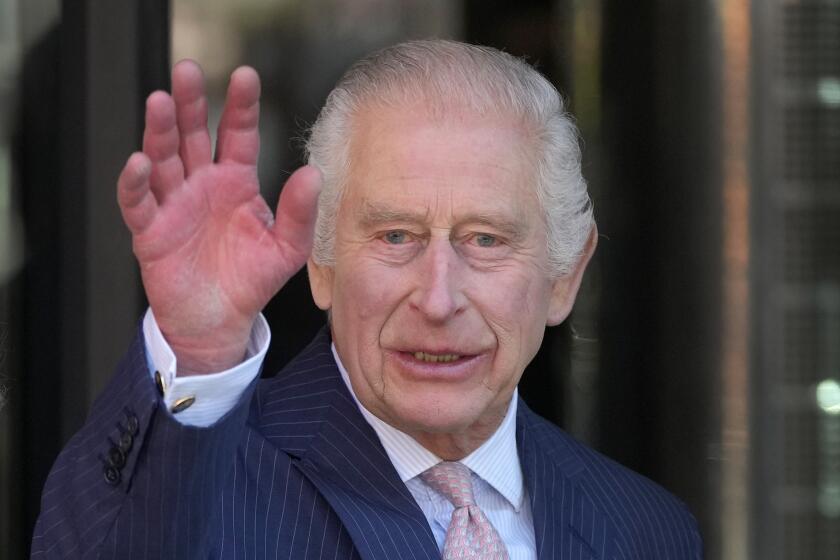U.S. Gives Up Hope of a Cambodia Accord Soon
The Bush Administration gave up hope Friday for a peaceful settlement in Cambodia soon, concluding that a monthlong international conference in Paris will be unable to paper over decades of animosity among the troubled nation’s rival factions.
“A comprehensive settlement is not in sight,” State Department spokesman Richard Boucher said. He said the sides are so far apart that Secretary of State James A. Baker III will not attend the conference’s final sessions next week.
The failure of the 20-nation meeting to fashion a coalition government to rule Cambodia pending free elections apparently means that the Vietnamese-installed regime of Premier Hun Sen will remain in place even if Vietnam keeps its commitment to withdraw its occupation troops next month.
U.S. Officials’ Fears
Without a political settlement, U.S. officials fear, Cambodia could face a bloody civil war once the Vietnamese forces go home.
The conference, which opened July 30, reached a nearly unanimous consensus by its second day on the necessity for a coalition uniting the two Communist and two non-Communist factions that have been competing for power. But it was unable to act on that agreement because the factions refused to make the compromises necessary for such a power-sharing plan.
Boucher blamed the Hun Sen government and its patrons in Vietnam for causing the deadlock.
Baker, who attended the opening sessions, advocated an interim government headed by Prince Norodom Sihanouk, Cambodia’s former head of state and the leader of one of two non-Communist factions.
Under the coalition proposal endorsed by Baker, Sihanouk would share power with the other non-Communist faction, headed by former Prime Minister Son Sann, and the two Communist groupings, the Khmer Rouge and the Hun Sen regime.
Comprehensive Solution
According to U.S. officials who participated in the conference, Baker was able to obtain a commitment from most of the other nations insisting on a comprehensive solution including an interim government, instead of settling for a partial agreement on verification of the Vietnamese withdrawal without establishing a new Cambodian regime.
Most conference nations, including the Soviet Union and China, agreed that Sihanouk should head the coalition government, even though the rival Communist factions are both considered to be stronger militarily.
Despite their shared Marxist ideology, the Hun Sen government and the Khmer Rouge are bitter enemies. The Khmer Rouge, under Pol Pot, caused the deaths of an estimated 1 million Cambodians through starvation, disease and murder when they ruled the country from 1975 until Vietnam invaded in late 1978.
U.N. Fact-Finding Team
“As a result of the diligent efforts of most of the participating countries, particularly the co-chairmen, France and Indonesia, some progress has been made,” Boucher said. “There is a general consensus on the need for a comprehensive settlement.”
He said the conference has dispatched a U.N. fact-finding team to the region to gather information to prepare for establishment of a U.N.-sponsored international peacekeeping force in the event that other problems are solved.
“In spite of these achievements, there has been little progress in resolving the central issue in a viable settlement to the Cambodian conflict--that is, the establishment of a transition Cambodian government led by Prince Sihanouk which would guide the country to genuine democratic elections,” Boucher said.
‘Admirable Flexibility’
“Prince Sihanouk has demonstrated admirable flexibility in attempting to resolve this key power-sharing problem,” he continued. “Unfortunately, his reasonable attitude has not been reciprocated by Hanoi or the Phnom Penh regime.”
Based on the Administration’s assessment of the work of the conference so far, Baker does not plan to return to Paris for the Aug. 28-30 ministerial session, Boucher said.
The State Department’s Asia specialists are known to have urged Baker to attend the closing session. One senior official had said that Baker and his fellow foreign ministers might have the authority to overcome the impasse, while lower-ranking officials would not. But the secretary of state apparently concluded that the deadlock could not be broken.
More to Read
Start your day right
Sign up for Essential California for news, features and recommendations from the L.A. Times and beyond in your inbox six days a week.
You may occasionally receive promotional content from the Los Angeles Times.






